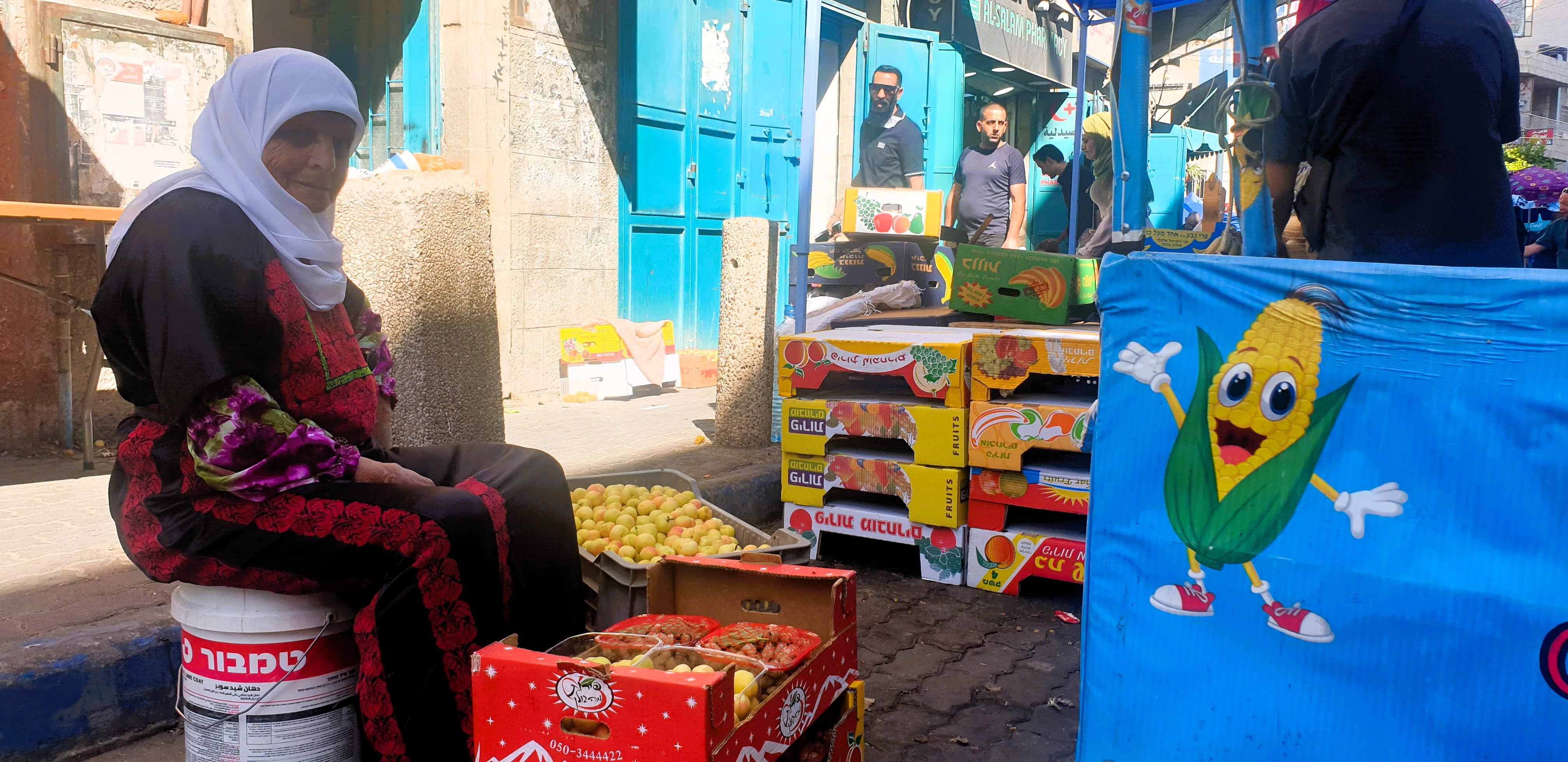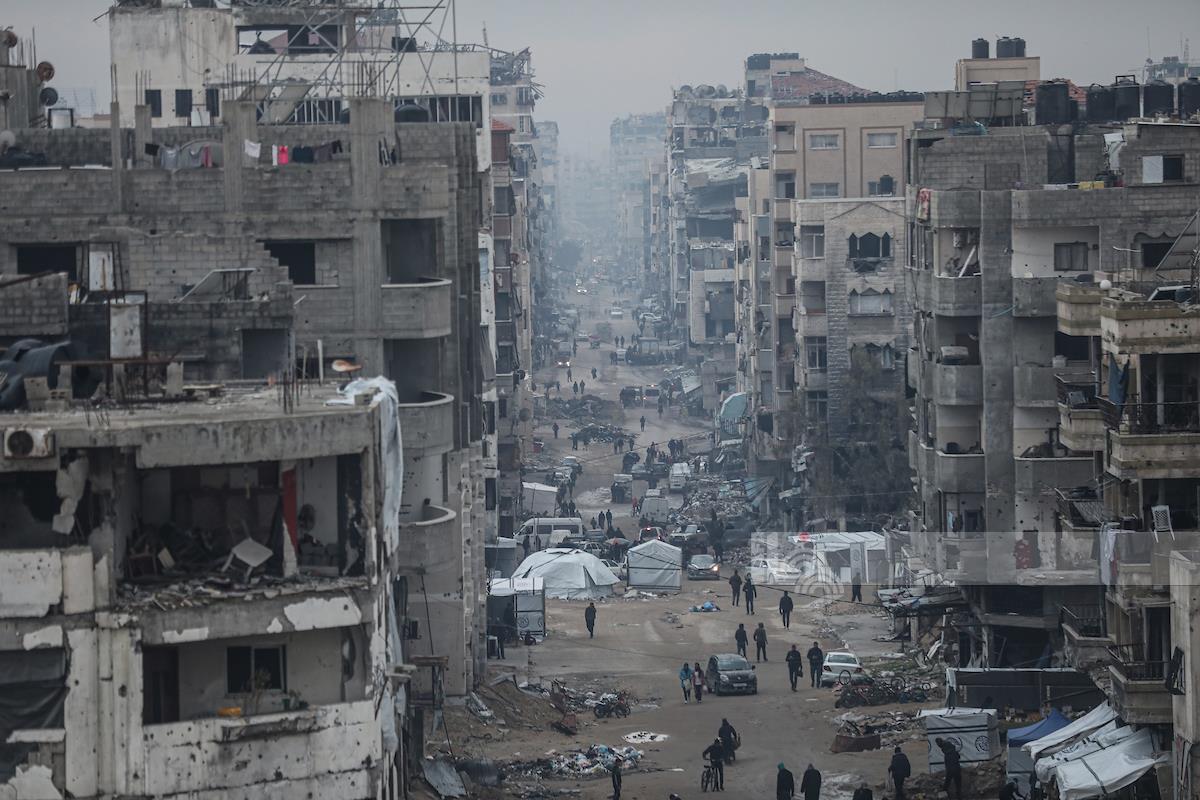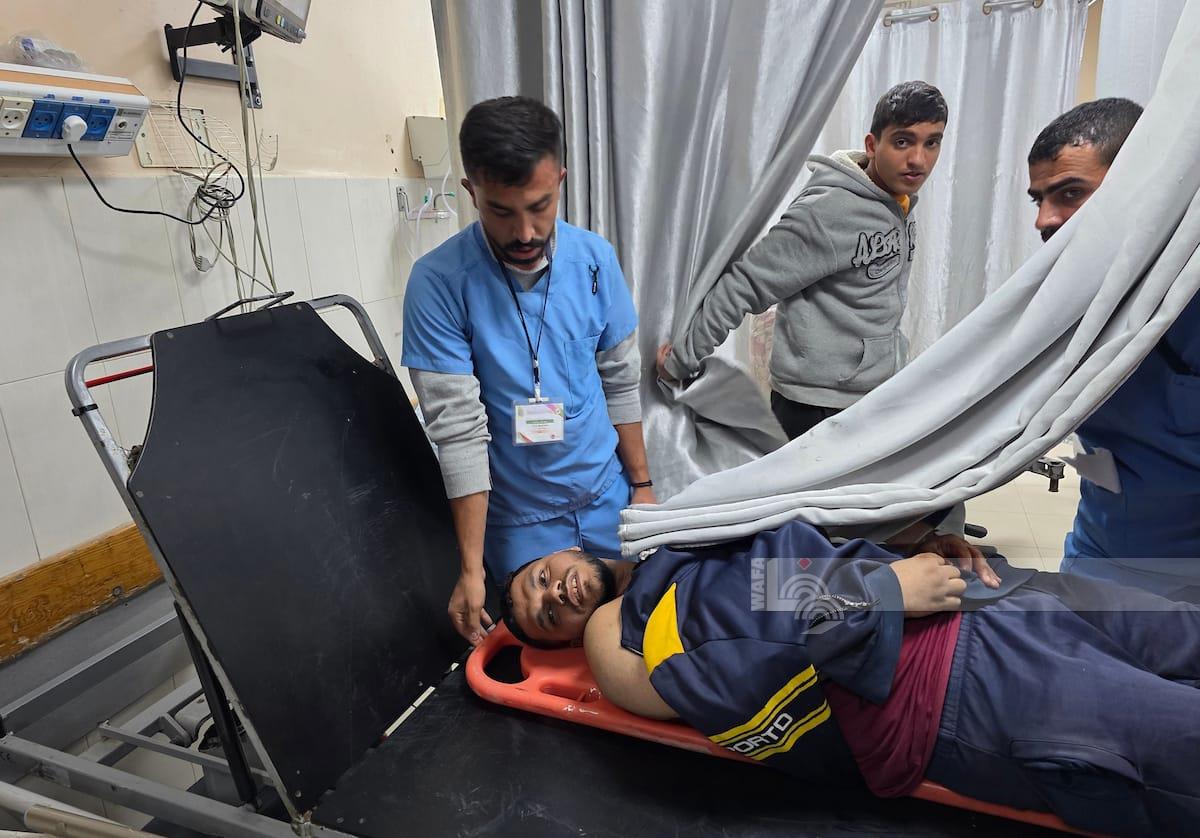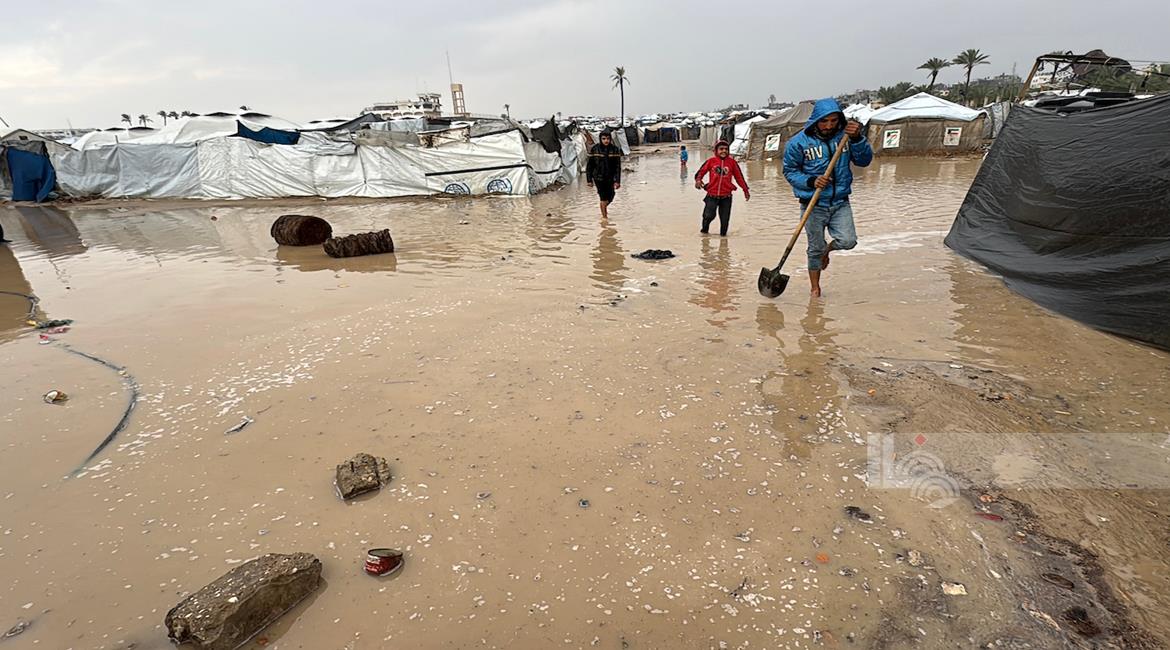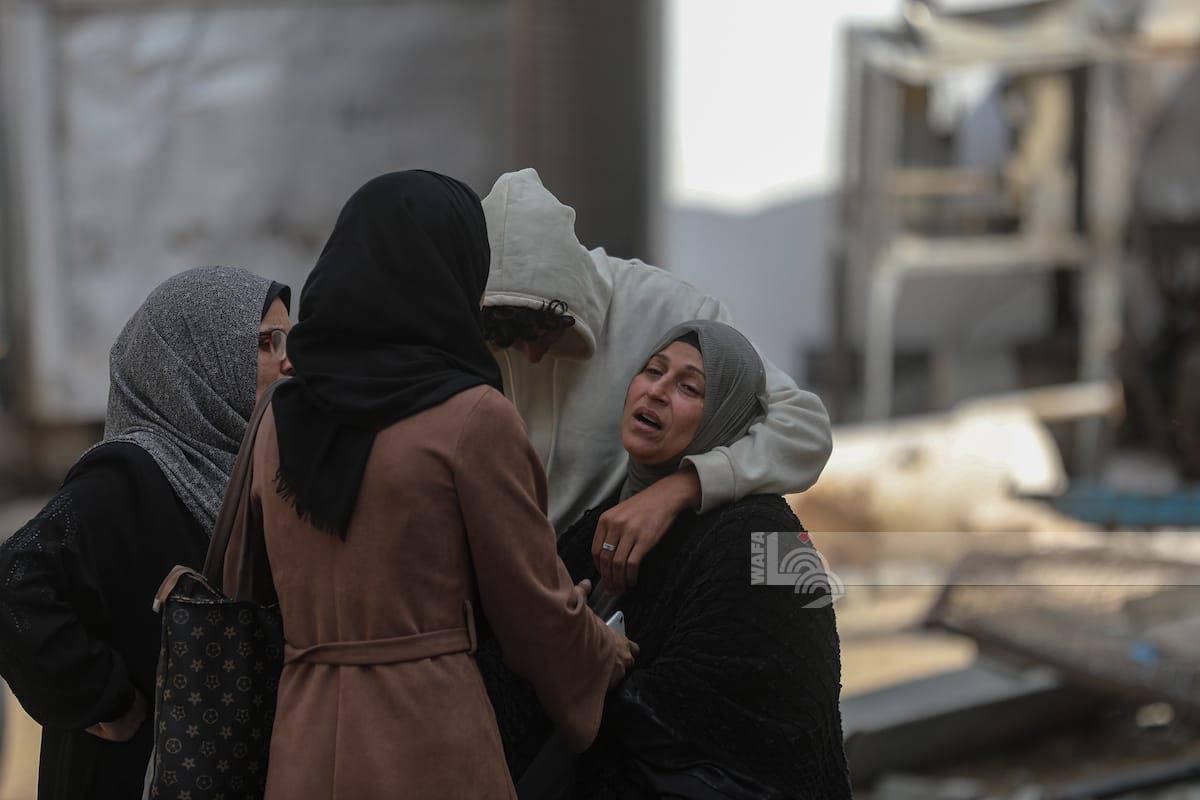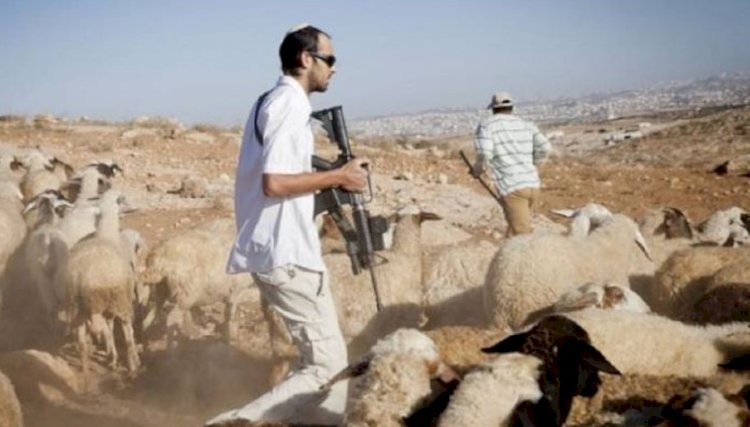By: Wa'ed al-Kar
BETHLEHEM, June 14, 2024 (WAFA) - Women in their sixties like Um Salem Al-Fawaghra has her little space in the cinema area in the center of Bethlehem, much like other female farmers who arrive early with their vegetables and seasonal fruits to sell to passersby.
Um Salem says that working on the land is her only hope for a decent living, affirming that the land has made her a strong and resilient woman, especially since she lost her husband twenty years ago.
She has four children: two daughters and two sons, all of whom she herself ensured completed their university education. "The land was my support and aid during those tough times," she says.
Um Salem adds that despite her children growing up, the circumstances today are similar, and the land remains her support.
"I taught my children to love the land and planted in them a sense of attachment to its soil, despite its dangerous location," Um Salem continues.
Her land borders the separation wall in the village of Wadi Rahal, south of Bethlehem.
She points out that during the Israeli aggression against Palestinian people in Gaza, her eldest son lost his job, and her other son now studies remotely. They were forced to work with her in planting seasonal vegetables in their seven-dunam land.
Um Salem does not hide her happiness about this because she sees them taking care of and showing interest in the land before her eyes. Moreover, she has become their manager in their new job, teaching them agricultural skills and principles, despite the modest financial gain, which is better than relying on others.
The story is similar for the seventy-year-old Um Ahmed Abu Suwayy from the village of Artas, south of Bethlehem, who says, "With the sunrise, I picked apricots from my land adjacent to the (Efrat) settlement and headed to the market to sell them."
Um Ahmed has become the sole provider for her family, consisting of her son, his wife, and their young children, after her son lost his job in the lands of '48.
She adds, "On the eve of Eid al-Adha, people’s ability to buy goods became weak. Most workers lost their jobs, especially in the Bethlehem Governorate, in addition to irregular and partial salaries for public sector employees."
Around 150,000 workers in the West Bank lost their jobs inside the '48 territories, with an additional 144,000 workers losing their jobs due to reduced production and Israeli restrictions on access to workplaces since October last year, according to a report by the World Bank.
Government employees in the public sector are also receiving reduced and irregular salaries amidst the worsening financial crisis faced by the Palestinian government, exacerbated by Israeli deductions of Palestinian tax revenues (clearance revenues) which constitute over 60% of government revenues, in addition to decreased external support to the government treasury.
According to data from the International Labour Organization, the daily income loss due to job losses amounts to $21.7 million (which rises to $25.5 million when accounting for reduced incomes in both public and private sectors).
Um Ahmed emphasizes that her work on the land is her only means of earning a living for herself and her family, affirming that her work on the land has been a lifeline in these deteriorating economic conditions.
It is evident that Palestinian women farmers face difficulties, starting with challenges in accessing water for seasonal vegetable farming due to Israeli control over groundwater allocations, as well as difficulties in accessing lands, especially those near settlements, and feelings of insecurity and fear of settler attacks.
Khitam Hamayel, Director of the Gender Integration and Development Department at the Ministry of Agriculture, notes that rural Palestinian women make significant contributions to enhancing rural economy and food security at the family and community levels.
She adds that one form of these contributions is seen in the percentage of time rural women spend in agricultural value chains, which amounts to nearly 87% in animal sector and 54% in the plant sector. The percentage of female labor in agriculture, according to the Palestinian Central Bureau of Statistics in 2021, is 7.7%.
Hamayel points out that nearly 90% of Palestinian women in the informal economy work in agriculture, and rural women constitute 30% of the Palestinian female workforce, according to the Palestinian Central Bureau of Statistics.
She explains that under current conditions, the burden on Palestinian women in providing food for their families has increased, with food security declining due to economic deterioration, instability, and the closure of many female-led projects.
She indicates that the percentage of women working as wage laborers in agriculture does not exceed 0.3%, compared to 6.6% for men, while their percentage in unpaid family work reaches about 76.3%, compared to 11.4% for men.
Additionally, 84% of Palestinian women do not own any land, and at least 65% of agricultural activities in various agricultural value chains are carried out by women, who also produce and provide approximately 70% of organic healthy food for their families.
Hamayel highlights challenges faced by Palestinian female farmers, including difficulty in accessing guidance information and agricultural equipment, lack of experience in packaging and marketing their products, weak market share, difficulty in accessing natural resources, in addition to general agricultural sector challenges in Palestine such as shrinking agricultural land due to settlement expansion, with over 60% of agricultural lands classified as "Area C" suffering from Israeli restrictions.
The Ministry of Agriculture has been implementing several measures over the years to enhance the role of women farmers, including legal and advisory awareness sessions for women and youth, support for female-led projects, and increasing the allocated percentages for women in land reclamation.



